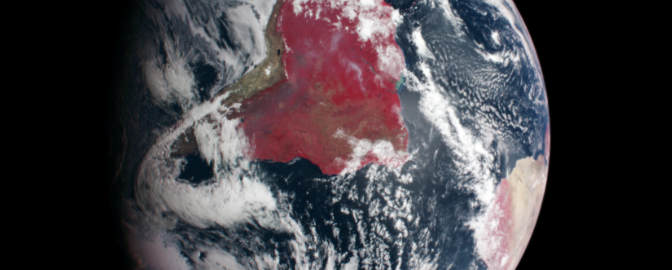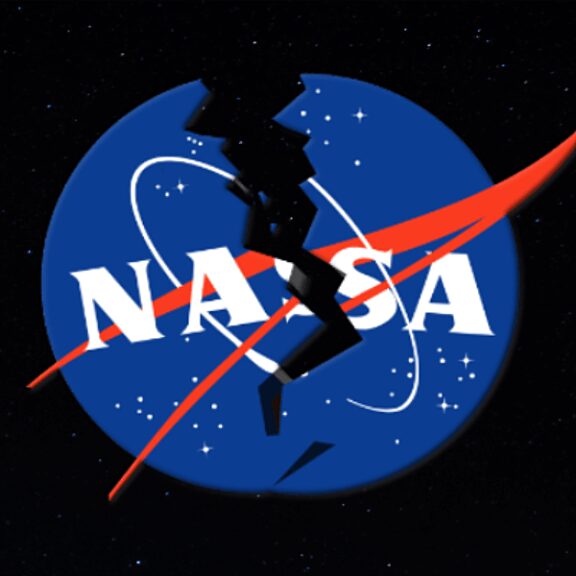Since 2002, Planetary Radio has visited with a scientist, engineer, project manager, advocate, or writer who provides a unique perspective on the quest for knowledge about our Solar System and beyond. The full show archive is available for free.
Search Planetary Radio
Hundreds of advocates joined The Planetary Society and partner organizations in Washington, D.C., to urge Congress to protect NASA’s science budget. Hear from Ari Koeppel, Britney Schmidt, Bill Nye, Rep. Glenn Ivey, Marcel Agüeros, Brandon Jones, and Casey Dreier about this historic Day of Action.
If the United States is indeed in a space race with China, why are we abandoning space science programs across the Solar System? This question, posed by guest Maxwell Zhu in a recent op-ed co-authored by The Planetary Society’s chief of space policy, reveals the current myopia around human spaceflight and the missing focus on a growing and ambitious new entrant into space science in the 21st century.
Bill Nye, CEO of The Planetary Society, celebrates his new star on the Hollywood Walk of Fame and joins us to reflect on its meaning. We also receive the latest space policy updates as NASA faces significant budget challenges.
Atlantic writer Franklin Foer joins the show to discuss how NASA enabled the rise of Elon Musk, and, in doing so, sowed the seeds of its own decline.
Dr. Bhavya Lal argues that the 2020s are a decisive decade for in-space nuclear power. Without nuclear, humans may never be more than visitors on Mars or the Moon.
Erin Flynn-Evans, director of the Fatigue Countermeasures Laboratory at NASA Ames Research Center, shares how sleep science is helping astronauts stay healthy in space and prepare for future missions to Mars.
Our guest, Mary Guenther, argues that the Democratic Party is ceding leadership in space policy, and how linking space to jobs, supply chains, and climate could help refocus the party’s relationship with the Cosmos.
Alicia Brown from the Commercial Space Federation and Brittany Webster from the American Geophysical Union join the show to discuss NASA’s fiscal year 2026 budget proposal.
The Giant Magellan Telescope advances toward construction with support from the National Science Foundation. Dr. Rebecca Bernstein joins us to explore how this groundbreaking observatory will transform our view of the universe.
Former NASA chief economist Akhil Rao explains why NASA needs economic expertise to navigate the complex — and often misunderstood — market forces that will determine the success or failure of its private partnerships.
We tackle the biggest questions about NASA's value, space exploration, and why public investment matters. Join us for a Q&A with Casey Dreier and Ambre Trujillo, and a space policy update with Jack Kiraly.
No one person knows how to build a spaceship. What happens to NASA’s collective knowledge when thousands of employees lose their jobs?
NASA's science programs face a proposed 47% budget cut. We break down what's at risk and how you can take action to help protect space exploration.
The space sector is data-rich but insight-poor. Jack Kuhr of Payload talks about how he turns raw numbers into real narratives.
Join Sarah Al-Ahmed and Casey Dreier for a special live recording of Planetary Radio at the Johns Hopkins University Bloomberg Center in Washington, D.C., immediately following The Planetary Society’s Day of Action.
Joanne Higgins joins Planetary Radio to share the untold stories of Black engineers who helped make the Apollo program possible. We explore their legacy, the challenges they faced, and how their stories can inspire a more inclusive future in space.
A reported 50% cut to NASA’s science budget threatens to shut down missions, halt new discoveries, and devastate scientific space exploration. This week, we break down the fight ahead with The Planetary Society’s space policy team and explore how grassroots advocacy can help protect the future of space science.
Can classical liberalism provide fresh insights to guide humanity’s activities in space? Philosopher Rebecca Lowe explains how it can.
Asteroid 2024 YR4 has captured global attention, but is it really a threat? Kate Howells breaks it down. Then, Casey Dreier and Jack Kiraly analyze how the new Trump administration is shaping NASA’s future.
Rocket Lab CEO Peter Beck outlines a $4B fixed-price plan for Mars Sample Return — and reveals new Venus mission details — before VP Richard French explains how a single, integrated team cuts costs and ensures success.


 Explore Worlds
Explore Worlds Find Life
Find Life Defend Earth
Defend Earth





















